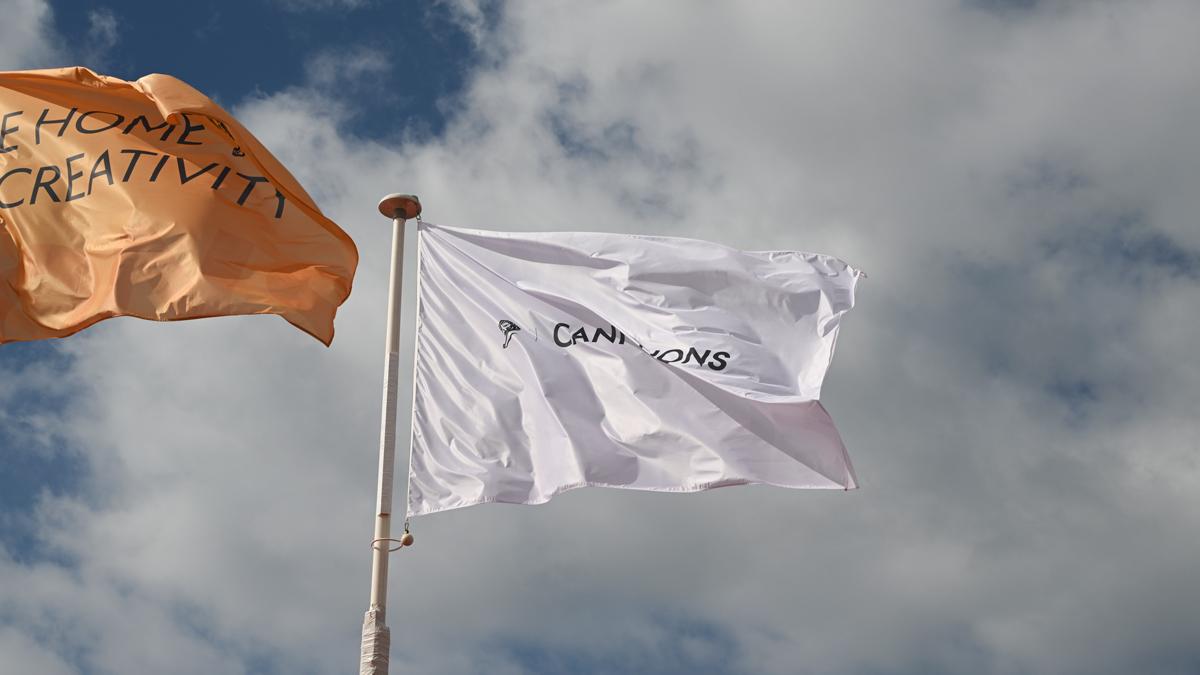Creative review: The Cannes Lions trends that pharma needs to know about

Pharma creative needs to stand up and be counted. That’s the message coming out of the latest Cannes Lions festival of creativity, where submissions in the pharma category fell by more than a third on 2023, and the industry received its smallest number of award wins in years. Just two pharma companies – Organon and Biogen – picked up medals, with the industry once again outdone by medtech in the battle for prizes.
Yet, despite the low-key performance – particularly disappointing after the strides made in recent years – there were encouraging trends in submitted work, as well as important learnings from outside the sector that could change the trajectory of pharma creative for companies brave enough to grasp the opportunity.
Here are 7 things we saw trending at Cannes Lions 2024:
1. Building around purpose
Purpose has become an integral part of brand identity, and Cannes showed more and more companies aligning with causes that resonate. The trend is important: the brands we love most stand for something their audiences care about. This shone through in winning entries, particularly in health categories; Siemens’ ‘Magnetic Stories’, the children’s audiobooks that help children overcome the scary experience of having medical tests (Grand Prix, Gold, Pharma); UN Women’s ‘Child Wedding Cards’, a campaign to protect children from child marriage (Grand Prix for Good, Gold, Health & Wellness); Biogen’s ‘Not a Lonely Journey’, a practical guidebook for disabled travellers (Bronze, Pharma).
Purpose is pharma’s sweet spot, because nothing matters more than our health, and helping to improve it is the ultimate purpose. When we get it right, no other industry is better placed to show that creativity can make a real difference to people’s lives.
2. Focus on equity
Another prominent theme was equity, which was at the heart of many pharma campaigns. As the conversation around health disparities and inequities grows louder, pharma is taking action to make social injustices more visible. This was evident at Cannes, with an abundance of entries focused on raising awareness of inequities, making medicines more accessible, and representing all communities appropriately. The winners underlined the point, including; ‘Airquity’ (Silver, Pharma), a biometric sensor that uses the ear canal to take accurate oxygen saturation readings across all skin types, addressing racial inequities found in traditional oximeters; ‘Mis(s)diagnosed’ (Bronze, Pharma), novel first aid kits that raise awareness of the symptoms of female heart attacks, highlighting a medical gender gap and need to diversify clinical trials.
3. Humour hits home
This year, Cannes Lions introduced Humour as a category. It was easy to see why – there were examples of it right across the show. Commentators said humour ‘invites consumers into conversations without judgement’ – it can drive connections, reach niche demographics and shape cultural discourse. Crucially, it can also capture market share. A great example of humour’s effectiveness actually came in Health & Wellness, where an OTC campaign – ‘The Last Barf Bag’ – won Grand Prix. The campaign, promoting an anti-nausea medicine, cleverly uses humour to document the death of the sick bag. It cut through. Also in health, ‘Michael CeraVe’ drew on the comedic talents of Arrested Development’s Michael Cera to prank audiences that he was the CeraVe brand founder. The quirky immersive campaign took Gold. The punchline? Pharma brands should embrace humour and light-heartedness. Sure, health is serious, but humour can help humanize brands and make complex medical concepts more understandable and relatable.
4. The growing influence of influencers
Social influencers were prominent throughout the week, with personalities like John Legend, Chrissy Teigen, and MuslimGirl founder Amani Al-Khatahtbeh among many social media superstars leading the conversation. Authenticity emerged as a key theme, with Teigen stressing the importance of genuine engagement. Authentic spokespeople can foster social communities, build trust and inspire confidence, especially among younger generations. Al-Khatahtbeh noted that 48% of Gen Z are prepared to ‘go broke to spend their money on brands that align with the values they believe’. Pharma companies are still trying to figure out how to maximise the power of social media influencers. But is the approach really that different from the work they already do with patient ambassadors? Pharma can, and should, do more to leverage patient advocates to build engaged audiences around health issues.
5. Social-first thinking
Tick tock… the clock is ticking on pharma brands’ willingness to engage with audiences on social channels. That’s increasingly where those audiences live so, despite obvious regulatory challenges, it’s rapidly becoming a commercial imperative to make it happen. The shift towards a social-first marketing mindset was a dominant topic for all verticals throughout Cannes. Experts highlighted that social media strategy goes way beyond influencers; it involves creators, content, community, paid media, email, experiential marketing, and partnerships, all working together. Can pharma brands live on social? They must find a way. According to TikTok's global head of business marketing, 79% of TikTok users welcome brands on the platform, but those brands must integrate authentically and act like community members. The most successful brands are "creatively brave" and constantly experimenting. The takeaway is clear: pharma brands need to be bold, embrace experimentation, and embed social-first thinking into their strategies to stay relevant and connected with audiences.
6. The sporting chance
Away from the more obvious topics, the growth of women’s sports stimulated an interesting discussion that should give pharma marketers pause for thought. Women's sports are gaining popularity, with increased viewership for activities like women's soccer and NCAA. Alexis Ohanian, co-founder of Reddit and owner of Angel City Football Club, said there were big opportunities for brands to build connections between athletes and fans beyond the game itself. NCAA star Flau'jae Johnson urged brands to create authentic stories rather than clichéd portrayals. The takeout? Brands – including pharma – should be investing in women’s sports, whether through media buys during events or collaborations with athletes. Those that do it now will be seen as visionary in the future.
7. Transforming experiences
Speaking of the future, no industry get-together would be complete without a tech update. Cannes Lions was no different. AI (naturally) featured loudly, with voices from Google, Microsoft and even Elon Musk parachuted in to discuss the risks and rewards. Last year, Musk said AI could endanger human existence. At Cannes he pulled back, telling a standing-room-only audience there was only a 10-20% chance of an AI-related disaster, preferring instead to big-up its ability to amplify creativity. The stats back him up. According to Microsoft, 82% of people believe AI boosts creativity, with many acknowledging it can enhance productivity, insight and innovation when combined with top creative talent. The learning for health: while AI in marketing might be overhyped, there are significant opportunities for pharma to use it to enhance HCP or patient communications.
Arguably, more interesting insight into tech’s influence on advertising comes from looking at what brands are doing in the here and now. The Cannes winners’ rostrum showcased incredible use of technology and craft to transform experiences. Health was no exception, including; KVI Brave Fund’s ‘Voice 2 Diabetes’, an app that detects type 2 diabetes via voice recordings (Gold, Pharma); Samsung’s ‘Impulse’ (Silver, Health & Wellness), an AI-powered app that gives people with speech orders a haptic speech coach they can wear on their wrists – moving treatment away from the treatment room.
These solutions, powered by great tech, show how creativity in health can transform experiences and make a meaningful difference to lives. And that’s why, as we close the door on another Cannes Lions, the message for our industry is clear: pharma creativity must stand up and be counted. The innovation, creativity, and ability to change lives runs right through the sector. It’s the ultimate purpose and we’re already doing it. Next year… let’s shout about it.











